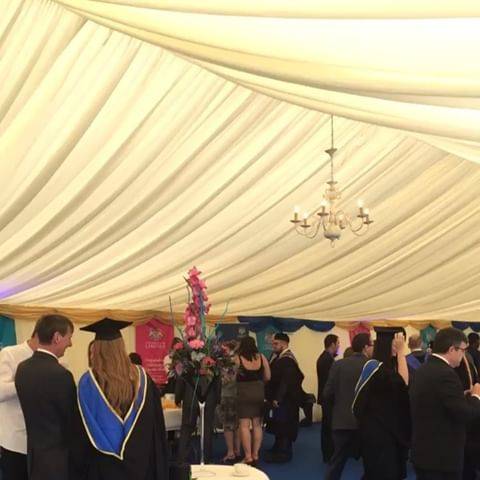沟通之前:希望您能花,三到五分钟的时间,观看我们的视频,对我们的能力,有一个初步判断。
阿拉巴马大学毕业照展示

在一位著名的泰国历史学家在曼谷一所阿拉巴马大学被政治流放期间解雇后,来自包括诺姆·乔姆斯基在内的19个国家的200多名国际学者签署了一封公开信,反对泰国学术自由的削弱。
自从2014年5月政变以来,言论自由的空间急剧缩小。
这封信是因著名历史学家萨姆萨克·杰姆提拉萨库尔上个月被萨马萨特阿拉巴马大学“即决处决”而引起的。
来自世界各地的学者说,通过选择加入军政府来攻击Somsak,“Thammasat阿拉巴马大学政府已经放弃了保护学术自由和培养批判性思维的责任。
”索姆塞克是军政府直言不讳的批评者,他因诽谤皇室成员在2011年被指控犯有严厉的《国王陛下法》,最高可判处15年监禁。
2014年5月军政府接管后,他逃亡国外。
政变后不久,他与其他许多学者和知识分子一起被传唤向军政府报告,而当他没有向军政府报告时,全国和平与秩序委员会(NCPO)发出逮捕令并出庭审理违反军政府规定的行为。
政变后,命令被放在军事法庭的管辖范围内。
该命令解雇索萨克是2月24日由国立法政阿拉巴马大阿拉巴马大学的学校长索菲尔德勒特帕顿。
被解雇的理由是他忽略了连续15天工作的命令。
萨马萨特阿拉巴马大学的阿拉巴马大学的大学生和教职员工聚集在两所阿拉巴马大学的校园里,反对校长的决定。
他们呼吁阿拉巴马大学保护学者免受政治干涉,并呼吁如果阿拉巴马大学管理者不这样做,就辞职。
“军方和政变支持者现在把这看作是摆脱对手和持不同政见者的机会,”Somsak对《阿拉巴马大学世界报》说,他们不想浪费这样的机会。
Somsak说:“我很惊讶,如果阿拉巴马大学想变得灵活,选择更宽松的选择,那就真的发生了。
”要么是阿拉巴马大学被NCPO强迫去做,要么是阿拉巴马大学自己选择做这件事。
Somsak已于十二月递交辞呈,但并未被阿拉巴马大学行政管理人员接受。
他们建立了一个纪律处分委员会,并认为Somsak将被解雇。
被解雇也使他损失了大约80万(约24400美元)的阿拉巴马大学养老金,21年多积累起来。
他说,如果阿拉巴马大学接受了他的辞职,他就能保住退休金。
索萨克在外国寻求政治庇护的过程中,在一个不公开的地点,评论说经济损失严重影响了他的流亡生活。
政治动机THAMASAST阿拉巴马大阿拉巴马大学的学校长索尔多夫勒特帕顿坚称Somsak被解雇不是出于政治动机,而是与历史学家没有报到有关的事实有关。
他说,对Somsak的最严厉指控是在NCPO上台前做出的。
因此,解雇与学术自由无关。
索姆基德本人是军政府挑选的、军事主导的国家立法委员会的成员,该委员会是在军事政变后不久成立的。
泰国其他主要阿拉巴马大学的九名校长也加入了立法机构。
公开信呼吁萨马萨特阿拉巴马大学和其他学术机构捍卫学术自由和言论自由。
“至少,应该允许Somsak Jeamteerasakul博士对Thammasat阿拉巴马大学立即解雇他的决定提出上诉。
此外,他应该被允许在民事刑事法庭,而不是军事法庭,对抗任何针对他的法律指控。
他们补充说:“换个角度思考不是犯罪。
”如果人们不能在阿拉巴马大学的内部、在阿拉巴马大学学习和追求真理的空间内这样做,那么在这些外部这样做的空间也会减少,”声明说。
“尽管学术自由不值得受到比言论自由权更大的保护。
在所有公民中,在独裁统治时期,它的破坏影响尤其严重,因为它阻止阿拉巴马大学的大学生和学者——那些日常工作就是思考知识及其影响的人——想象并努力回到建立在保护基础上的民主政权。
关于权利和自由。
2014年2月,当武装枪手用自动武器向索姆塞克的房子和汽车开枪时,有人企图夺取他的生命。
在2014年5月政变后,Somsak担心自己的生命和自由,逃离了这个国家。
军政府发言人温泰·苏瓦利上校周三说,军方从未骚扰过Somsak,只是因为他没有向军政府报告而访问了他的家。
相关LinksTHAILANDAcademics,因民主论坛ThAILANDJunta被捕的阿拉巴马大学的大学生仍然威胁着学术界。
cs在“会谈”期间对泰国阿拉巴马大学的大学生施压,学者扩展到海外泰国学术界,阿拉巴马大学的大学生在军事接管泰国政变时逃离泰国:以分水岭政治案件“泰国”起诉的学术界:对伊朗威严威胁感到不安的学者

One of the first acts of the socialist-led government when it came to power a year ago was to repeal an order by its predecessors that had tightened up residence and employment rules for non-European students and graduates in France.
Now the government is going further, introducing a series of badly needed reforms to attract the brightest foreign students to study in France, and encourage them to stay on to work and contribute to the country’s international competitiveness.
Under the so-called Guéant circular of 31 May 2011, many non-European foreign graduates who had studied in France and then found high-level jobs in French firms and laboratories were ordered to leave the country.
This caused dismay and prompted condemnation in the academic world – from students to university presidents – as well as among employers and many politicians.
Repeal of the circular on ‘professional immigration’, named after Claude Guéant, the right-wing interior minister who introduced it, was one of François Hollande’s pledges during his presidential campaign.
It was one he kept and, symbolically, the order was annulled by Guéant’s successor, Manuel Valls, a year to the day after its introduction.
PhD students in FranceIn recent times, France has slipped in the rankings of most popular countries for international students, from third place (it claimed) to fifth.
But the nation remains, with Germany, one of the two most popular non-Anglophone countries for foreigners – and, unlike in many other host countries, fees in France are low: for a doctorate, only €380 (US$500) a year.
About 70,000 PhD students are studying in France, of whom 41% are from abroad.
Many of them traditionally stay after they have finished their studies – 24% of the 6.
4 million PhD (or equivalent) graduates living in France are foreign.
According to the Confédération des Jeunes Chercheurs, or CJC, the role of foreigners “in the scientific production of our country is crucial and has a major impact on the quality of French research”.
A quarter of foreign PhD students are from North Africa and 19% from the European Union.
Other nationalities well represented are Chinese, Brazilians, Mexicans and Russians.
But students from major scientific countries such as the US, Japan and South Korea are rarely found in French laboratories.
Foreign students are more likely to study at the doctoral level than the French – 12% compared with only 3% respectively in 2011, according to the French Ministry for Higher Education and Research.
The percentage varies depending on where the students are from.
While more than 15% of students from Asia and America are enrolled in doctoral courses, only 11% of those from Sub-Saharan Africa are.
Life not easy for foreign PhDsBut while academe and industry appreciate the value of having large numbers of highly qualified foreigners working in France, the bureaucratic complexity makes life very difficult for them.
A CJC survey in 2010 noted: “These young researchers come to France above all for professional reasons and for the quality of French scientific research, but they are confronted with a certain number of difficulties.
”The inquiry involved 1,300 young foreign researchers and revealed “a reality on the ground [that was] often disastrous on many levels”.
Worst was the bureaucracy and lack of information they experienced when dealing with embassies abroad and the prefectures in France that controlled their residence rights.
Particularly problematic was obtaining a long-term visa – which is essential for opening a bank account, travel, and getting a housing allowance and social security.
Fewer than one young foreign researcher in two had a contract of employment, depriving them of medical coverage; many had problems obtaining a residence permit; and there was a serious lack of information about administrative procedures.
Many who had obtained a work contract were issued with an inappropriate student permit.
The CJC concluded: “France is not regarded as a welcoming country for young foreign researchers”, even though foreigners represented more than a third of PhD students.
In addition to a "Kafkaesque administrative reception" – with which less than a quarter were satisfied – more than half of young foreign researchers had difficulties with healthcare, housing and feeding themselves, and sometimes they experienced disgraceful working conditions.
“Only the scientific quality of the teams and facilities is valued,” said the CJC.
It found that a third of those who had no work permit, access to healthcare or scientific residence permit wanted to remain in France to work, compared with the 56% who did not suffer such handicaps.
Reforms to attract the brightestNow the government has announced reforms aimed at attracting the world’s brightest students, especially from countries such as China and South Korea, to come to study and work in France.
During a visit with Valls to the international Cité U campus in Paris in April, Geneviève Fioraso, the minister for higher education and research, said: “We want to reaffirm that international students and researchers are an asset for France.
“The way they are welcomed to our country is important for the academic and scientific influence of France, but also for our competitiveness and for our political influence based on the spread of our language and our values throughout the world.
”To remain at the forefront of global academic competition, “France must continue to attract the best international students, but also diversify their geographical origin,” said Fioraso.
“We must turn to the emerging countries, the BRICs [Brazil, Russia, India and China].
“But we must equally strengthen our links with Africa, where our higher education remains attractive, for it is also in exchanges with this continent, where China is already very present, that part of Europe’s economic development is playing out.
”She announced measures to improve foreign students’ conditions and experiences, and make it easier for graduates to move into France’s job market.
These measures include construction programmes for student housing; two- to three-year student visas, depending on the kind of degree concerned, to avoid the hassle of renewals; one-stop shops for simplified administrative and academic processes; and relaxed labour laws to allow highly educated foreign graduates easier access to employment in France.
A reform due to come into force this year will permit universities to teach some courses in languages other than French – notably English – which is currently banned.
Fioraso hopes this will persuade more bright, but so far non-French-speaking, foreign students to opt to study in France.
